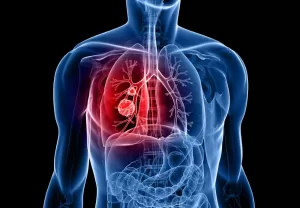How to Choose the Best Lung Cancer Treatment Plan
Facing a lung cancer diagnosis can be one of life’s most challenging experiences. Selecting the right treatment plan means carefully weighing factors like the stage and type of cancer, available therapies, and your overall health. In Singapore, advanced lung cancer treatment options and comprehensive cancer care provide hope for improved survival rates and quality of life.
Understanding Lung Cancer Treatment Options in Singapore
Lung cancer treatment in Singapore typically involves a multi-modality approach. For early-stage cancers confined to the lung, surgery is often recommended to remove cancerous tissue. If surgery isn’t an option—due to medical reasons or the location of the tumor—radiation therapy such as stereotactic body radiotherapy (SBRT) and stereotactic ablative radiosurgery (SABR) offers a highly targeted, non-invasive alternative, preserving much of the surrounding healthy tissue and minimizing side effects. Chemotherapy remains crucial for advanced or inoperable cases, and may be given before or after surgery, or alongside radiation therapy for locally advanced disease.
Newer strategies in Singapore include targeted therapies—medications selected based on the genetic and molecular characteristics of an individual’s cancer. Molecular profiling allows oncologists to personalize treatment, increasing effectiveness while minimizing unnecessary toxicity. Immunotherapy, which activates the body’s immune system to fight cancer, has substantially improved outcomes for many with advanced disease. Together, these innovations have become central pillars of cancer care in Singapore.
Cancer Survival Rates and Prognosis
Cancer survival rates depend on factors such as tumor type, stage at diagnosis, and how an individual responds to therapy. In Singapore, lung cancer survival has improved over the last decade, thanks to multidisciplinary care, widespread use of molecular profiling, and access to new treatments and clinical trials. Early-stage, localized lung cancer treated surgically has significantly higher five-year survival rates compared to advanced or metastatic disease. Timely, accurate diagnosis and the selection of the most appropriate therapies are critical for improving outcomes.
Navigating Complex Treatment Decisions
Because lung cancer encompasses a diverse group of diseases and the field is advancing rapidly, treatment choices can be complicated. Multidisciplinary team models, such as lung cancer clinics at Singapore’s leading hospitals, bring together specialists in medical oncology, surgery, radiation therapy, and pathology to create coordinated, individualized care plans. Comprehensive molecular profiling helps match each patient to the therapies most likely to be effective for their specific cancer.
Patients are encouraged to play an active role in their care—discussing all options, asking about clinical trials, and addressing potential side effects or quality-of-life concerns. Regular reassessment of treatment effectiveness is important, as some patients may develop resistance to drugs or need to adjust their therapy over time.
Factors to Consider in Your Treatment Plan
When choosing the best lung cancer treatment plan, consider:
- The type and stage of lung cancer (non-small cell or small cell; localized or metastatic)
- Your overall health, lifestyle needs, and any co-existing medical conditions
- The likely benefits and risks of surgery, chemotherapy, and radiation therapy in Singapore
- Availability of targeted therapies, immunotherapy, or clinical trial opportunities
- The support provided by Singapore’s multidisciplinary cancer care teams
Conclusion
Selecting the best lung cancer treatment plan is a collaborative and dynamic process, guided by science and personalized to your needs. Advances in Singapore’s cancer care—including novel drugs, minimally invasive radiation therapy, and a multidisciplinary team approach—are improving cancer survival rates and patient experiences. Remaining informed, communicating openly with your care team, and actively participating in treatment decisions will help you find a path that fits your medical and personal goals. The combination of innovative therapies and expert, coordinated care offers real hope and better outcomes for those facing lung cancer.
Disclaimer: The content for this article is for informational purposes only and is not a substitute for professional medical advice, diagnosis, or treatment. Always consult your oncologist with any questions regarding a medical condition. Do not disregard medical advice or delay seeking it based on information from this site.

